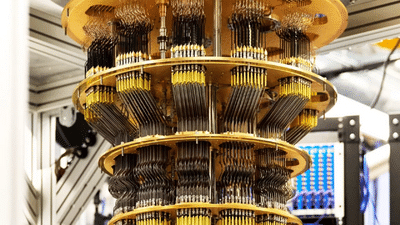
Google has made a historic leap in quantum computing with its Willow Quantum Processor. Using the newly developed Quantum Echoes algorithm, the system performed computations 13,000 times faster than the world’s most powerful supercomputer. According to Google CEO Sundar Pichai, this marks the first time a quantum computer’s speed has been both measured and independently verified by another quantum system.
Historic Quantum AdvantagePichai announced the breakthrough on X (formerly Twitter), highlighting that the Willow chip achieved the world’s first verifiable quantum advantage. The findings were published in Nature, demonstrating that the Quantum Echoes algorithm outperformed the best classical algorithms by an unprecedented margin.
The algorithm leverages nuclear magnetic resonance (NMR) technology to simulate how atoms in a molecule interact. This capability could accelerate drug discovery and the development of new materials, with results that can be replicated and verified across other quantum systems.
What Is the Quantum Echoes Algorithm?The Quantum Echoes algorithm rapidly computes quantum measurements known as Out-of-Time-Ordered Correlators (OTOC). By detecting subtle interactions between atoms and molecules, it enables calculations impossible for classical computers, opening doors for breakthroughs in molecular chemistry and materials science.
13,000 Times Faster Than a SupercomputerGoogle reports that the Willow chip’s performance was 13,000 times faster than the world’s fastest supercomputer—a record speed increase on verifiable quantum hardware. This demonstrates that quantum processors are transitioning from theoretical experiments to practical, real-world applications.
The Technical Power of the Willow ChipThe Willow chip features 105 high-fidelity qubits, offering exceptional accuracy and stability. These qubits can simultaneously handle complex quantum calculations, significantly enhancing data processing capabilities and paving the way for the next generation of quantum processors.
Potential Impact on Science and IndustryIf these results are replicated, the breakthrough could transform drug design, materials research, and molecular chemistry. Google Quantum AI notes that this achievement signals the shift from the experimental era of quantum computing to the applied era, opening vast possibilities for science and industry alike.